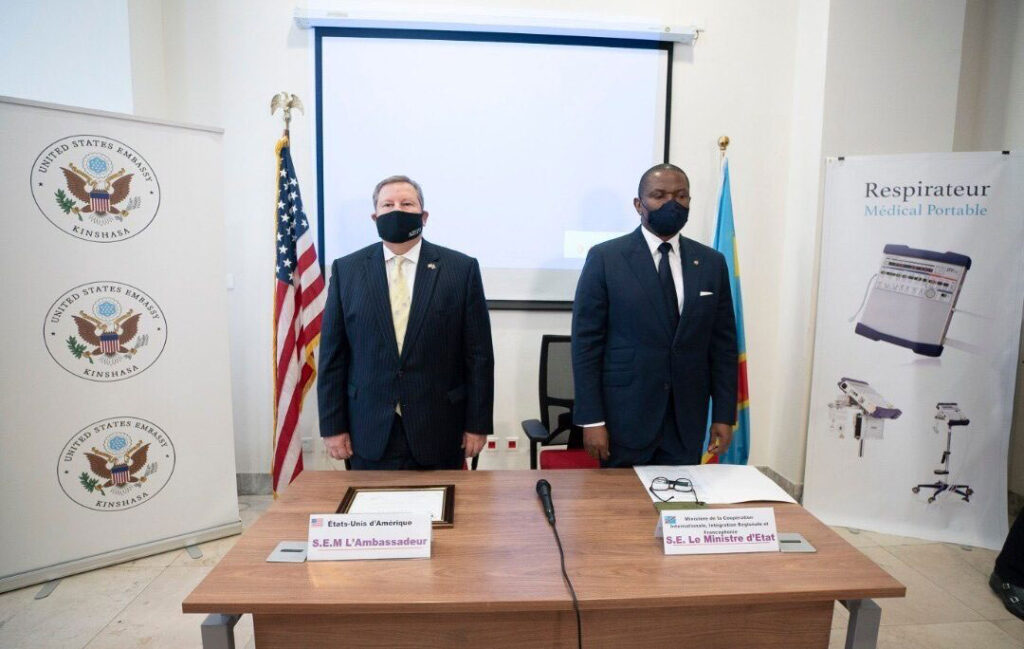ADF STAFF
The U.S. has delivered 50 potentially lifesaving ventilators to the Democratic Republic of the Congo (DRC). The donation is part of a roughly $35 million pledge the U.S. government made to help the country fight COVID-19.
DRC accepted delivery from the U.S. Agency for International Development (USAID) while confronting a range of threats, including militant violence, a roughly 40% food insecurity rate and sporadic Ebola outbreaks. The central African country grappled with measles and cholera outbreaks when the first COVID-19 case was confirmed there in March.
The breathing machines enhance oxygen levels in COVID-19 patients whose lungs are failing. A ventilator moves oxygen in and out of the lungs through a tube inserted in a patient’s airway.
“We hope these brand-new, quality machines will save countless lives as we all work together to overcome the COVID-19 pandemic,” said Mike Hammer, U.S. ambassador to the DRC. “By providing these ventilators to the government of DRC, the U.S. government is reiterating its commitment to work hand in hand with the Congolese people in our Privileged Partnership for Peace and Prosperity.”
U.S. support to DRC includes technical assistance to ensure that critical COVID-19 medicines reach their intended destinations, increase hygiene awareness, counter misinformation, strengthen clinical care, increase laboratory capacity, and improve disease surveillance and contact tracing.
Previous experience handling deadly Ebola outbreaks helps DRC officials and front-line health care workers address the pandemic. Ebola has killed about 2,300 people in the DRC since 2018, according to the U.S. Centers for Disease Control and Prevention.
“Our experience with Ebola has helped a lot,” said Emmanuelle Bofoe, who works with a Catholic outreach organization called Caritas. “The actions to stop the spread of COVID-19 are similar to the ones to stop Ebola, but with a greater focus on mask wearing, confinement and social distancing.”
Efforts to combat Ebola “showed that politicians need to call on scientists [during a] crisis, and the scientific community should not disappoint,” Jean-Jacques Muyembe, director-general of DRC’s National Institute for Biomedical Research, told PBS NewsHour.
The key to tackling infectious disease outbreaks is early detection, said Anne Rimoin, who runs a nearly 20-year-old program in the DRC that trains doctors and nurses to identify and react to such outbreaks.
“The real picture of what’s really going on in the interior of [the DRC] is very, very difficult to paint without widespread access to testing, really good disease surveillance and an understanding of what’s really happening on the ground,” Rimoin told PBS.
Rimoin also is a professor at the University of California, Los Angeles’ Fielding School of Public Health, whose research focuses on emerging infectious diseases, especially those that are transmitted from animals to humans, such as COVID-19.
“Once you have a wildfire, it’s very, very difficult to contain,” she said.
COVID-19 had killed more than 300 DRC residents as of November 1, according to the Africa Centres for Disease Control and Prevention.

